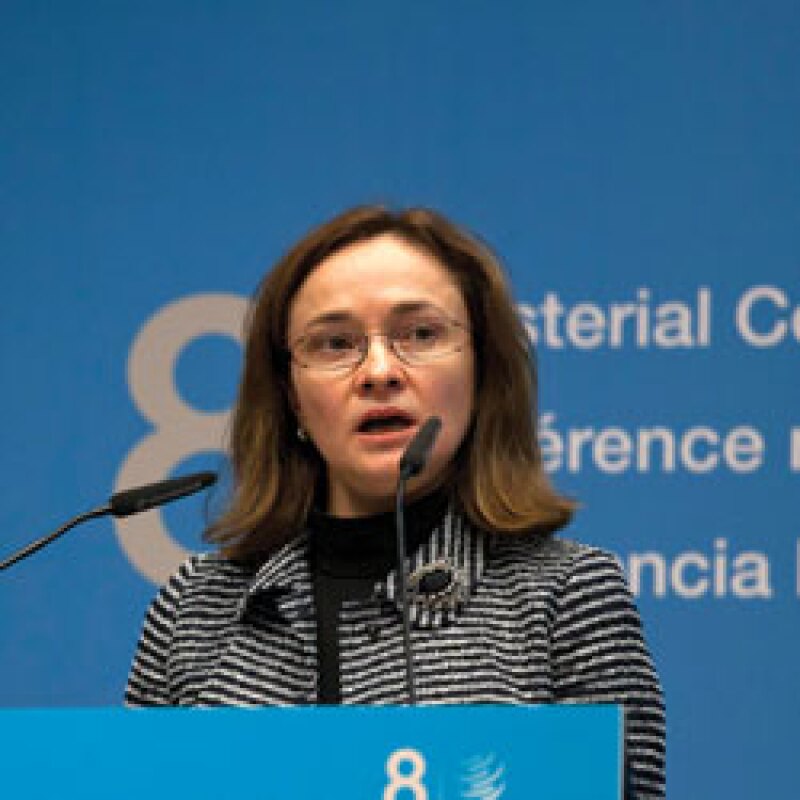
Without the quiet and steely presence of Elvira Nabiullina at the head of its central bank, Russia could and probably would have been in a far worse condition. When the Tatar-born economist was installed at the head of the Central Bank of Russia in June 2013, many asked the obvious question. Was she there to think for herself and deal with challenges on their merits — or to follow the bidding of president Vladimir Putin?
The answer came in the dark, dying weeks of 2014. Russia, struggling to cope with plummeting oil prices, pinioned by Western sanctions and shut out of the international capital markets, was in crisis, the rouble in freefall. Nabiullina acted calmly, rationally and brutally, sticking to longstanding plans to end the rouble’s peg against the US dollar. She raised interest rates sharply to combat soaring inflation.
Russia’s economy fell into a deep recession, contracting 3.7% in 2015, its worst annualised performance since the global financial crisis. Retail sales slumped while global investors fled. Inflation rose anyway, hitting 15.5% in 2015.
But Russia — as it so often does — recovered, rocking a little before finding its feet. Nabiullina’s tough medicine was swallowed by corporates and lenders — and by a public inured to long, cold winters. Growth is now tipped by the International Monetary Fund to enter positive territory in 2017, with the economy set to expand by 0.8% and inflation set to fall to 6.5%. Nabiullina has publicly stated her intent to cut inflation to 4%.
If 2014 and 2015 was an all-round horror show, the investment climate this year, for Russia at least, has been surprisingly benevolent. A sharp rebound in the demand for emerging markets assets, partly driven by the US Federal Reserve’s dovish stance on interest rate hikes, has helped to push the Micex exchange to an all-time high. As of September 4, according to data from EPFR, global investors had added $1.3bn year-to-date to funds that invest in Russian stocks and bonds.
Unemployment has remained low throughout the protracted crisis while the resource-rich nation, despite struggling with low oil prices, has continued to run a healthy current account surplus. The rouble, through the first eight months of 2016, had gained 13% against the US dollar, ranking it third among all emerging currencies.
Russia’s return to the international bond markets this year, for the first time since Putin’s annexation of the Crimean peninsula, was a painful experience. But the central bank chief’s decision to cut interest rates in June for the first time in nearly a year, by 50bp to 10.5%, was cannily timed. Elvira Nabiullina’s ability to prevent the Russian economy from falling off a cliff — and then clawing it back from the edge — is mightily impressive. Her biggest challenge, injecting growth and credit into the still-ailing economy, is yet to come.
